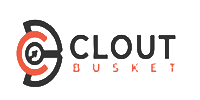Importance of Career Planning: A Complete Guide to Securing Your Future
Career planning is more than just choosing a job; it’s a lifelong process of setting career goals and designing a roadmap to achieve them. Whether you are a student, a professional looking for growth, or someone considering a career shift, career planning is crucial for long-term success and satisfaction.
In this article, we will dive deep into the importance of career planning, its benefits, and how you can effectively plan your career for a prosperous future.

What is Career Planning?
Career planning is the process of identifying your skills, interests, values, and goals to choose a career path that aligns with your ambitions. It involves setting both short-term and long-term career objectives and creating an actionable plan to achieve them.
Key Elements of Career Planning
- Self-assessment (skills, values, interests)
- Exploration of career options
- Setting achievable career goals
- Skill development and continuous learning
- Evaluating progress and making adjustments
Why is Career Planning Important?
- Provides Clear Direction
Career planning gives you a clear sense of direction. Instead of wandering aimlessly through various jobs, you can focus on roles and industries that align with your goals and values.
Example: If you aspire to become a marketing manager, you know you must gain experience in marketing, build a strong portfolio, and possibly pursue certifications.
- Enhances Motivation and Confidence
When you have a plan, you feel more motivated and confident in your abilities. Knowing your career path minimizes confusion and strengthens your commitment to achieving success.
- Helps in Skill Development
Career planning highlights the skills you need to develop. It allows you to invest time and resources wisely by focusing on education, training, and experiences that add value to your career goals. - Prepares You for Opportunities
With a well-laid plan, you’re better prepared to grab opportunities that align with your career growth. Whether it’s a promotion, a project, or a new job role, being ready gives you a competitive advantage. - Reduces Career-Related Stress
Uncertainty about your professional future can be a major source of anxiety. A career plan reduces this stress by providing clarity and realistic expectations.
Benefits of Career Planning
- Long-term Vision
Career planning helps you maintain a long-term vision. You can anticipate industry changes, evolving job trends, and adapt accordingly to stay relevant. - Financial Stability
A clear career path often leads to better job positions and, subsequently, higher income. Strategic career moves ensure financial growth over time. - Work-Life Balance
By aligning your career choices with your personal values, you can achieve a better work-life balance. Career planning helps you prioritize what matters most to you. - Personal Growth and Satisfaction
Pursuing a career that matches your passion and skills leads to greater job satisfaction and personal fulfillment.
Steps to Effective Career Planning
- Self-Assessment
Start by understanding yourself—your strengths, weaknesses, interests, and values. Tools like personality tests (e.g., MBTI) and career aptitude assessments can be useful. - Research Career Options
Explore various career paths that match your profile. Research industry growth trends, required qualifications, job responsibilities, and salary expectations.
- Set SMART Career Goals
SMART goals are:
- Specific
- Measurable
- Achievable
- Relevant
- Time-bound
Setting SMART goals helps you stay focused and track your progress effectively.
- Develop an Action Plan
Outline the steps needed to achieve your goals, such as acquiring degrees, gaining relevant experience, building a professional network, or learning new skills. - Stay Flexible
Career planning isn’t rigid. Stay open to new opportunities, and don’t hesitate to revise your plan when necessary.
Career Planning for Different Stages of Life
For Students
Career planning early can help students choose the right courses, internships, and extracurricular activities aligned with their career ambitions.
For Early Professionals
At this stage, career planning focuses on gaining experience, building a strong professional network, and identifying opportunities for specialization.
For Mid-Career Professionals
Mid-career planning may involve considering promotions, leadership roles, or even career shifts to align with evolving personal and professional goals.
For Career Changers
Career planning is crucial for those who wish to transition into a new industry or profession, ensuring they acquire the necessary skills and certifications.
Challenges in Career Planning (and How to Overcome Them)
| Challenge | Solution |
| Lack of self-awareness | Conduct a detailed self-assessment |
| Fear of change | Start with small steps and build confidence |
| Industry instability | Stay updated and continually upgrade skills |
| Unrealistic goals | Set achievable, well-researched career targets |
Career Planning and Modern Trends
In today’s rapidly changing job market, traditional career paths are evolving. Here are a few modern trends influencing career planning:
- Gig economy: Freelancing and remote jobs offer more flexibility.
- Technological advancements: Skills like AI, data analytics, and digital marketing are in high demand.
- Continuous learning: Micro-credentials, online certifications, and workshops are becoming increasingly important.
- Work-life integration: The focus is shifting from job titles to meaningful work that offers personal satisfaction.
Conclusion
The importance of career planning cannot be overstated. It is the foundation for achieving professional success, personal satisfaction, and financial security. Whether you’re just starting out or contemplating a mid-career change, investing time in career planning will pay dividends throughout your life.
Start today—assess your goals, create a plan, and take charge of your career journey!








